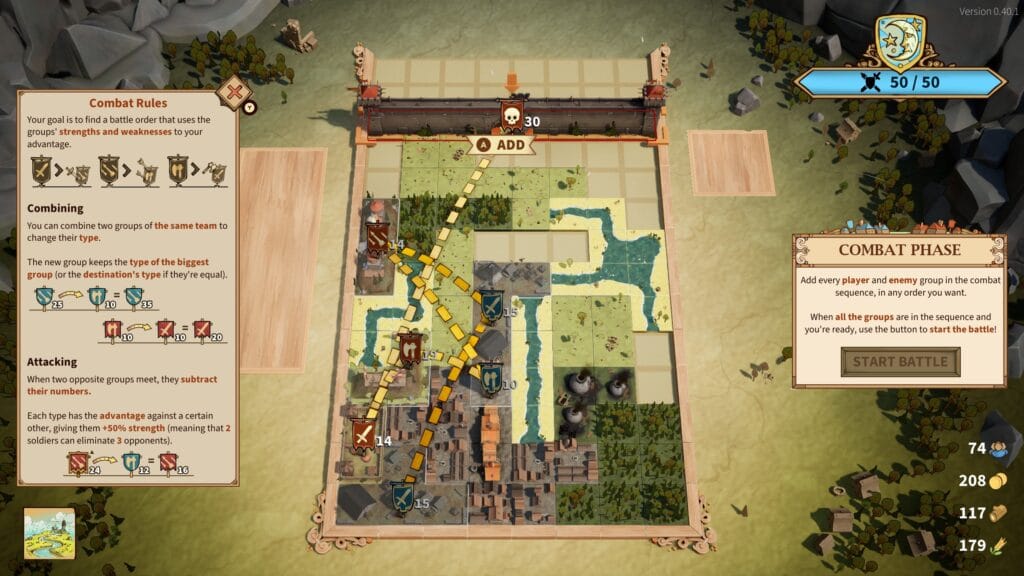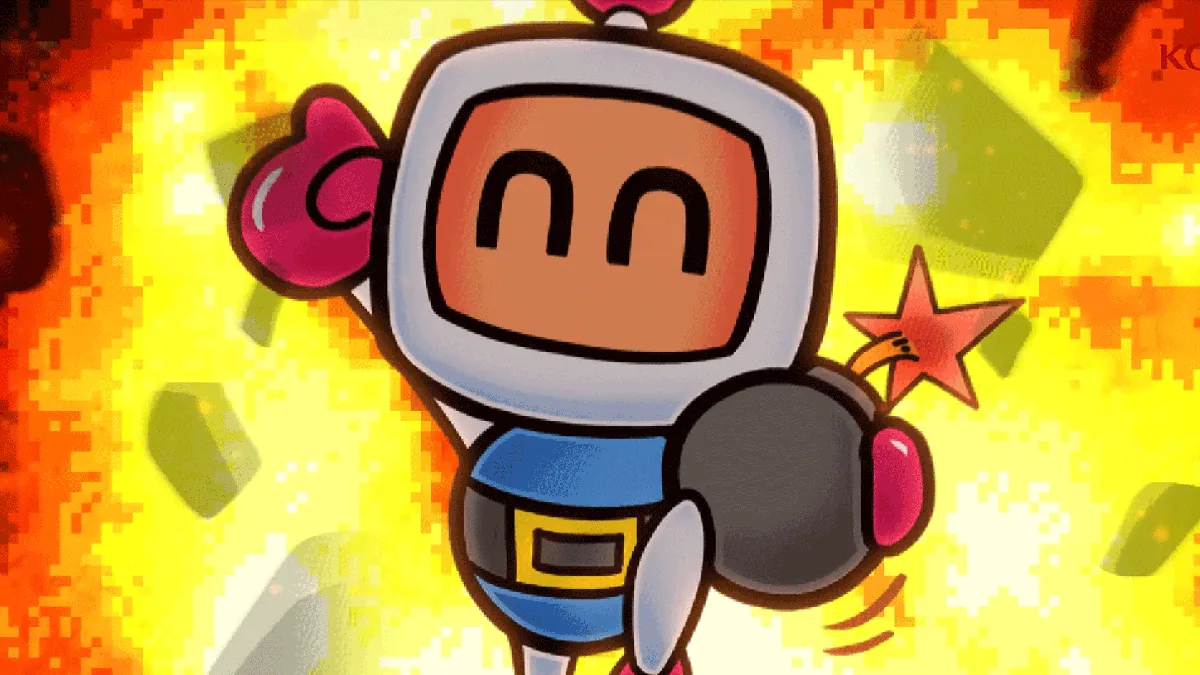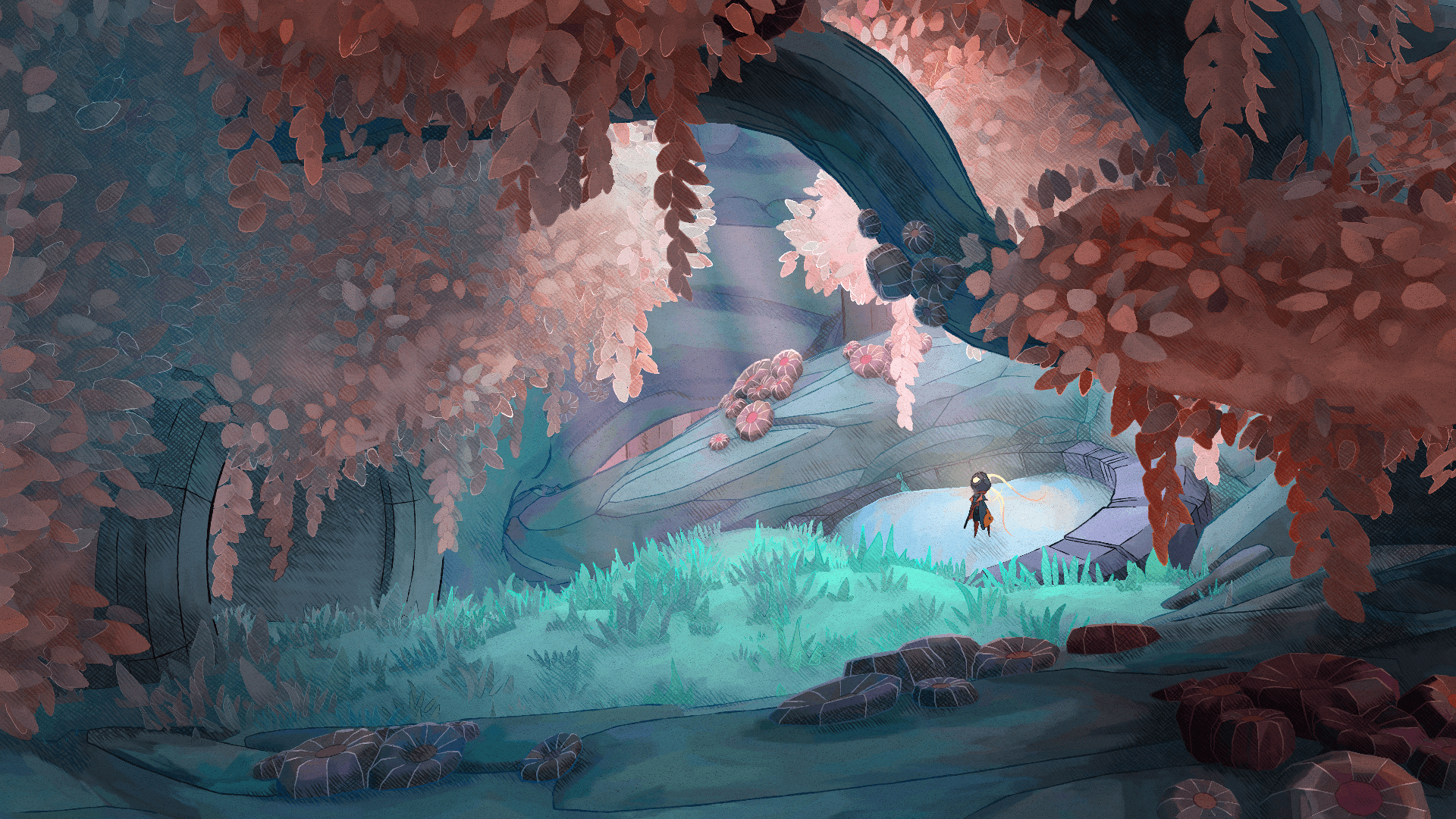It has been a running joke for some time that the last thing the world needs is another roguelike deckbuilder – but Drop Duchy is a powerful counter-example. While this medieval-themed experiment from Sleepy Mill Studio is both a roguelike and a deckbuilder, it is something more, and brilliantly so. It lifts its core mechanic from the Soviet classic Tetris, but weaves in enough ingenious fusions and complications to keep players coming back again and again.
Placing blocks is mostly what players do in Drop Duchy – largely the same tetrominos used by Alexey Pajitnov in 1985 – but here they have a very different function. Each piece represents either terrain or buildings which make up a medieval fiefdom which gradually grows vertically from the bottom to the top of the playing space. The clever part is how these blocks interact with each other.
A forest block does little by itself – but a woodcutter placed adjacent to it will transform the forest into a plain, earning the player a quantity of wood. A farm in proximity to a plain will transform it into a field, which brings in food. Resources like this are used to upgrade buildings between rounds. Chaining transformations together allows the same square to be exploited multiple times; completing (or “exploring”) a row earns extra income. Unlike in Tetris, completed rows do not disappear, and time pressure is minimal.

Drop Duchy is no walk in the park, however – this is where combat comes in. While there are peaceful zones, most rounds have enemy buildings shuffled into the deck of cards which represent upcoming blocks. The player must place their own buildings to take advantage of their special characteristics, while also placing enemy buildings as inefficiently as possible to cut the number of rival troops on the battlefield. This is an endlessly engaging puzzle within a puzzle; managing economic gain and military necessity at the same time is fascinating.
Battles themselves are the work of a few seconds, a variation on rock, paper, scissors. There are only three unit types, each with a strength against the second type and a weakness against the third. The player is made to choose a sequence of engagements, again trying to game this system to secure a win. If thought through carefully, even a seemingly weaker force can emerge triumphant. Each act ends with a unique boss fight, which all require a powerful military force to overcome.
All of this is great fun but what takes Drop Duchy to the next level, and the level after that, is the gradually arriving complications that Sleepy Mill Studio have come up with. Completing challenges earns progression points which unlock new buildings, factions, and even entire mechanics in a large progress tree. One example is the concept of faith. Religious buildings grant the player faith. This is a unique modifier – each unit of faith increases the player’s income of all resources by 5%. One of the factions leans heavily on faith, with multiple faction-specific buildings that tie into it.

Another brilliant concept is to do with terrain types. Initially there are three, each with buildings that have special terrain-specific interactions – plains, forests, and rivers. At the end of each act, the player must abandon a terrain type completely so that another can be added in its place. For example, Act Two adds mountains, which come with their own raft of particular economic and military buildings, and a new resource – stone – which is often needed to upgrade cards to their highest level.
It would be difficult to overstate how thrillingly complex all of these interactions are. A successful run through all three acts can be tackled in less than an hour, but each run is wonderfully different. A riverside urban approach, a strategy based on vast fields guarded by watchtowers, and a theocratic chain of mountain fortresses are just some of the possibilities. As in any good roguelike, most failed runs unlock new options and strategies for later use.
The icing on the cake is that Sleepy Mill Studio have got the audio and visuals for Drop Duchy just right. The music is varied and lovely, the sound and visual effects perfectly complement every row explored and battle fought. Some technical issues – notably a greedy consumption of system resources – have been ironed out by the day one patch. Only some potentially confusing card explanations slightly disrupt what is a very nearly perfect puzzle experience. Drop Duchy could follow in the footsteps of Inscryption and be the next big thing – and deserves it.





